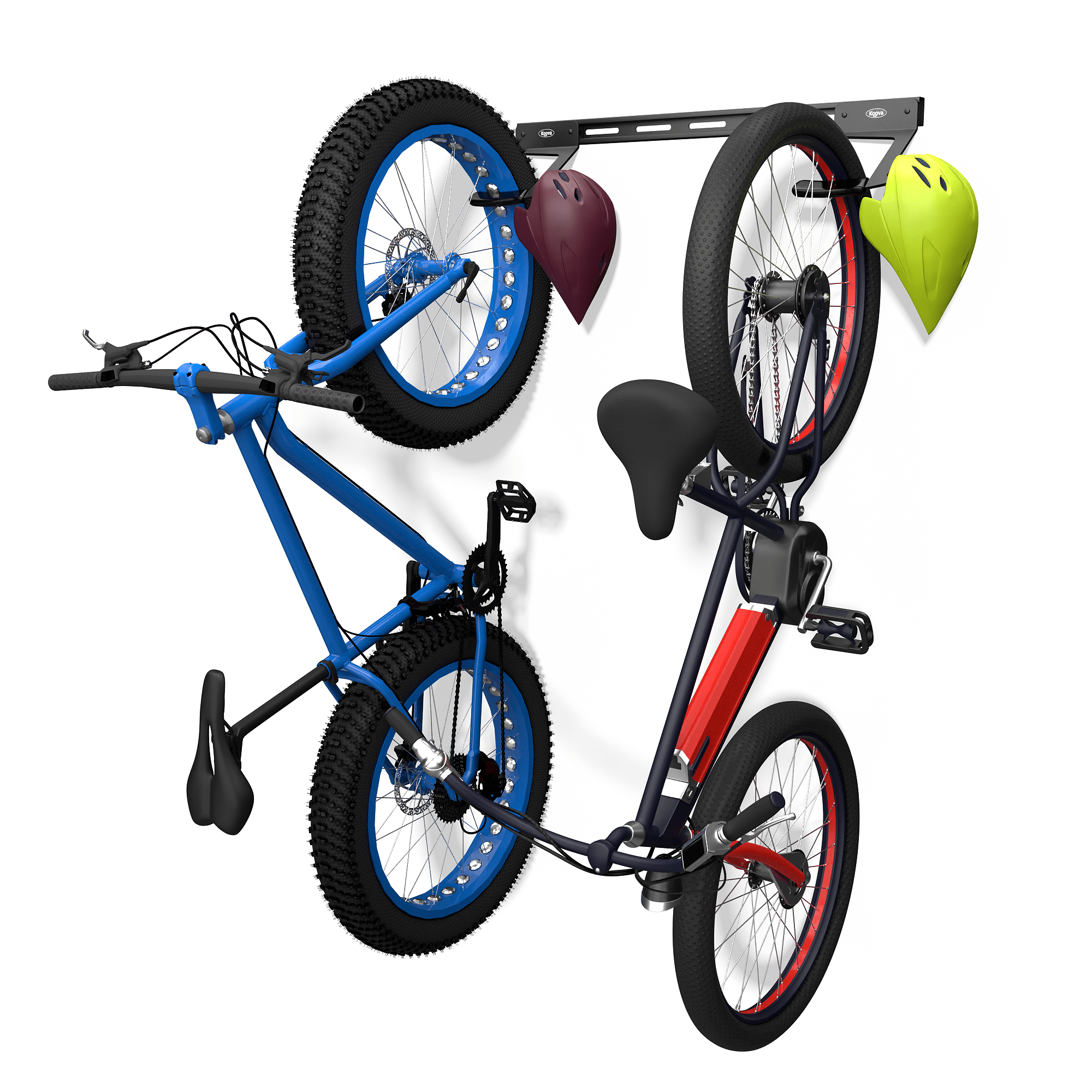Overview
Teaching kids organization is crucial for their development and can be made enjoyable with fun activities, routines, and effective tools like the Wall Bin Storage System. Engage them through color-coding, challenges, and music, while leading by example and creating designated spaces for their belongings. Establish daily clean-up routines and reward their efforts to encourage responsibility and independence, setting them on a path to lifelong organizational skills.
Frequently Asked Questions
1. Why is organization important for children?
2. How can I make organizing fun for kids?
3. What role do parents play in teaching kids organization?
4. What tools can I use to help kids stay organized?
5. How can I encourage kids to take responsibility for their organization?
Teaching children the importance of organization can feel like an uphill battle, but with the right strategies, you can foster a sense of responsibility and self-management in your kids. This blog will provide you with practical tips and inventive ideas on how to encourage kids to keep their spaces organized, with a focus on tools like the Wall Bin Storage System, which can be a game changer in any room.
Understanding the Importance of Organization
Before diving into methods to encourage organization, it’s essential to understand why it's important. Organization not only helps children to keep their spaces tidy, but it also cultivates life skills that they will benefit from as they grow up. An organized environment can lead to:
- Improved focus and concentration
- Reduced anxiety and stress levels
- Enhanced creativity and problem-solving skills
From their bedroom to study areas, helping kids to take ownership of their spaces will instill discipline and responsibility. Let’s explore effective ways to do just that!
Make Organization a Fun Activity
The first step to encouraging kids to organize is to make it an engaging and enjoyable activity. Here are some fun ideas to get them excited:
Color-Coding
Use a color-coding system for different categories of items. For instance, assign a specific color for toys, books, and art supplies. This not only helps kids to visually differentiate between their belongings but also makes it easier for them to put things away. If you incorporate a Wall Bin Storage System, use colorful bins that match their favorite colors!
Organization Challenges
Create mini-challenges for your children. Set a timer and see who can put away the most toys in a short time span. This blends fun and education, making organization feel like a game rather than a chore.
Music and Dance
Play their favorite music while organizing. Encourage them to dance as they clean up their space. The upbeat atmosphere can transform a mundane task into a lively and enjoyable experience.
Lead by Example
Children learn a lot through observation. If they see you maintaining an organized home, they are more likely to adopt those habits themselves. Here’s how to set the right example:
Show Your Organization Skills
Involve your kids in organizing your shared spaces, like the living room or kitchen. Discuss what items are used frequently and why it’s important to keep those items accessible. Let them see you using a Wall Bin Storage System for items like mail, magazines, or household supplies.
Share Your Organizing Journey
Share stories about times when an organized space made your own life easier, whether it was finding more time for hobbies or feeling less stressed. Engaging them with personal experiences can help them understand the practical benefits of organization.
Creating a Designated Space for Everything
Investing time in creating a designated spot for every item is crucial in maintaining organization. Here’s how to effectively set this up:
Accessible Storage Solutions
Choose storage solutions that are age-appropriate. For younger children, opt for bins that are easy to reach and open. The Wall Bin Storage System can be an excellent option here, as it allows kids to see their options clearly and encourages them to put items away after use.
Signs and Labels
Help kids to identify where things belong by using labels or signs. Have them draw pictures or use stickers to mark bins, making it visually appealing. This can help non-readers know where to return their toys without frustration.
Establish Routines
Regular routines help in cultivating disciplined habits. Creating a daily cleaning schedule will make organizing a natural part of their day:
Daily Clean-Up Time
Set aside a few minutes daily (e.g., before dinner or bedtime) for a clean-up session. Use this time to make it a ritual, ensuring that the room is tidy before moving on to the next activity. Incorporate reminders and timers to help them feel accountable.
Weekly Organization Review
Once a week, take time to evaluate how well the organization system is working. Involve your kiddos in discussions about what’s effective and what could be improved. This reflection encourages them to take ownership and make adjustments as needed.
Incentivize Organization
Positive reinforcement can be a powerful motivator. Here are some ideas:
Reward Systems
Implement a simple reward system for keeping spaces organized. For instance, use a sticker chart to track days when the room was tidy. Collecting a certain number of stickers could lead to a fun family outing or a special treat!
Celebrating Small Wins
When children accomplish organizing tasks, celebrate! Acknowledgment goes a long way in reinforcing positive behavior. Whether it's a high-five, a special dessert, or extra playtime, make them feel proud of their efforts.
Use Tools Effectively
Having the right tools makes a significant impact on how children perceive organization. Here are some suggestions on how to utilize storage tools effectively:
Investing in Systems like the Wall Bin Storage System
One of the best solutions to encourage children to keep their spaces organized is utilizing the memory of the Wall Bin Storage System. Not only is it visually appealing, but its functionality also allows kids to keep their toys and supplies off the floor, making it easier to maintain tidiness.
Easy-to-Use Storage Bins
Choose bins that are easy for little hands to maneuver. The key is to keep their items accessible. Highlight how to put things back, teaching them the correct processes for cleaning up after playtime.
Teaching Organization Skills Through Projects
Involve children in projects that require organizing, thereby turning opportunities into learning experiences:
DIY Projects
Engage with DIY projects to create custom storage solutions. This could mean decorating plain boxes or building a simple shelving unit. This activity not only makes organizing fun but also teaches valuable skills of crafting and building, creating a multi-layered learning experience.
Seasonal Clean-Up Drives
Implement seasonal cleaning drives where you go through items together and decide what to keep or donate. This teaches kids to assess their belongings and decide what's essential, fostering a sense of control over their spaces.
Fostering Independence
Ultimately, the goal is to encourage children to take responsibility for their organization:
Encourage Decision Making
Let your kids have a say in how they want their spaces organized. Allow them to choose the colors, structures, and setups that feel right for them. Their sense of ownership leads to developing good habits.
Gradual Release of Responsibility
Start by guiding them through the organization process and gradually allow them more freedom as they develop skills. This gives them confidence to maintain organization on their own, which will serve them in various aspects of life later on.
Final Thoughts on Keeping Kids Organized
Helping your children to keep their spaces organized can be an enriching experience for both parents and kids. With creativity, consistency, and the right tools like a Wall Bin Storage System, organizing becomes not just a task but a journey of self-discovery and growth. The skills learned through this process will not only enhance their surroundings but also cultivate life-long habits that contribute positively to their daily lives. By laying the foundation now, you're setting your kids on a path to a more organized, focused, and stress-free future.
Linked Product

Wall Bin Storage System for Garage or Shed Organization
The Wall Bin Storage System offers a practical solution for optimizing garage or shed organization by utilizing wall space for storage. With the ability to hold 2 to 6 tote containers, it helps keep seasonal items and personal belongings neatly arranged and easily accessible. Constructed from durable American steel, this system is designed for longevity and can be expanded to accommodate additional storage needs.
View Product

